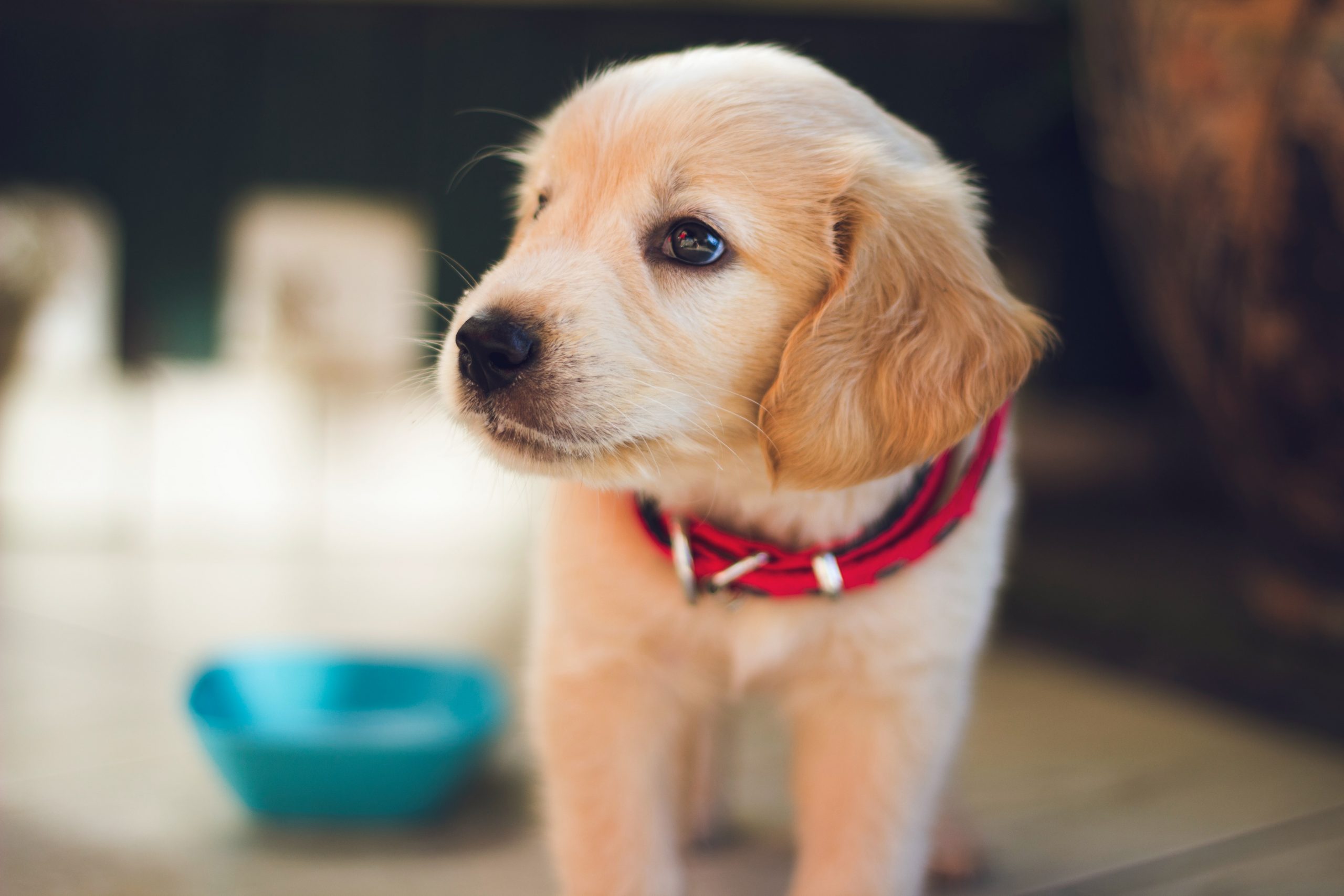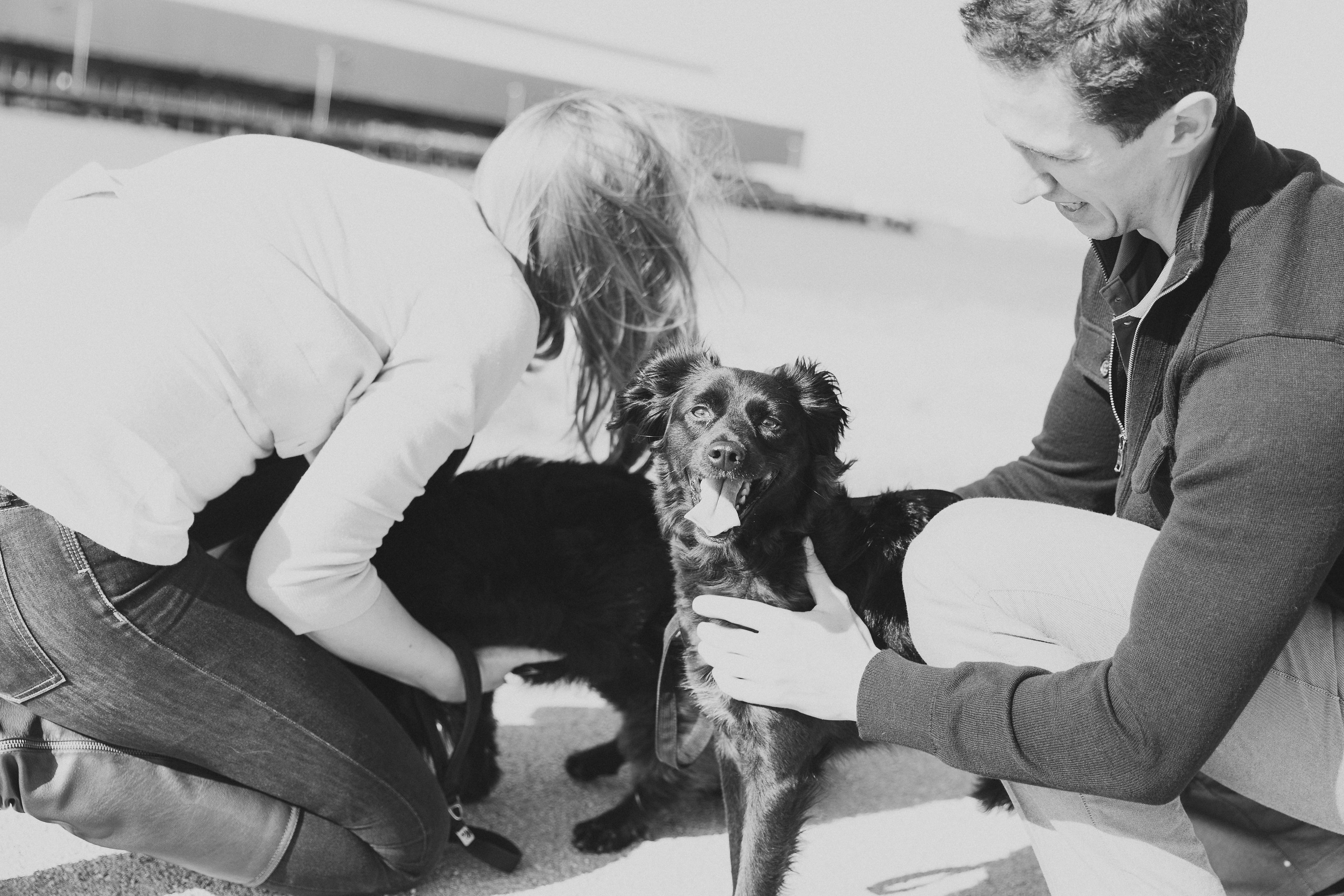Some of the best dogs in the world are service dog dropouts! These career change dogs are often the most perfect pets.
Almost half of the dogs who start service dog training don’t end up working full-time. But here’s the good news: these career change dogs often go up for adoption into loving homes.
They may not have finished their training, but they are still smart, well-behaved, and full of love to give.
If you’re looking for a friendly, loyal dog, adopting a working dog who’s ready for their next adventure could be the perfect choice.
What Is a Career Change Dog?
A career change dog (sometimes called a service dog dropout) is a dog that was trained by a service dog organization but didn’t complete the program.
These dogs leave training for lots of reasons, and none of them are bad.
Helping individuals with physical, cognitive, or hearing issues requires a specific mix of learned skills and temperament. Not all dogs have that special sauce. Most dogs that fail have typical puppy traits which can quickly disqualify a dog from moving on to a life of service.
Some reasons dogs leave include:
- Being shy or nervous in new places
- Getting distracted easily (those squirrels are tempting!)
- Preferring to relax instead of work all day
- Having minor health issues that make service work hard
Most of the time, it’s not their fault at all. They are still wonderful dogs — they’re just better suited for family life instead of being a full-time service dog.
Now, they’re ready for a forever home where they can just be themselves.
Why Do Service Dog Dropouts Make Great Pets?
Career change dogs have so many great qualities that make them amazing pets!
- Training: Many know sit, stay, walk nicely on a leash, and basic commands.
- Good Temperament: They are usually calm, patient, and love being with people.
- Social Skills: They’ve seen lots of places, people, and sounds — so they adjust easily.
- Health Checks: Most were checked for health problems before training even started.
Because of all this, adopting a career change dog is often easier than adopting a young, untrained puppy.
Common Breeds for Career Change Dogs
Service doggie-dropout dogs can be almost any breed or mix. But some breeds are more common because they are smart, gentle, and easy to train.
You’ll often find:
- Labrador Retrievers
- Golden Retrievers
- German Shepherds
- Standard Poodles
- Labradoodles and Goldendoodles
These breeds are not just smart — they are also very loving and people-focused. That’s what makes them perfect family dogs too!
“They may not have finished their training, but they are still smart, well-behaved, and full of love to give.“
Where Can You Find Available Dogs?
If you’re ready to adopt, many organizations have available dogs looking for homes:
- Guide Dogs for the Blind — Based in the San Francisco Bay Area, offering dogs who didn’t finish guide training.
- Service Dogs, Inc. — Trains working dogs for people with disabilities.
- Guide Dogs of America — Offers career change dogs for adoption.
- Paws With A Cause — Places available dogs into forever homes.
Each service dog organization has its own rules about adoption. Some have waiting lists because lots of people want these awesome dogs.
But don’t worry — it’s worth the wait!
What’s the Adoption Process Like?
Adopting a service dog dropout is a little different than adopting from a shelter.
Here’s what usually happens:
- Application: You fill out a detailed form. Be honest and specific about your home, lifestyle, and dog experience.
- Home Check or Interview: Some groups like to meet families first to be sure it’s a good match.
- Adoption Fee: You’ll pay a fee to help cover training and vet care.
- Waiting Lists: Be prepared to have patience! Many people apply, so it might take some time to get matched.
It might take a few months — but finding the right dog is worth it.
Special Skills Career Change Dogs May Have
When you adopt a career change dog, you’re getting more than just a sweet face and a wagging tail. These dogs have often received early service training that makes them extra special family pets.
Here’s what many career change dogs already know:
-
Patience:
They’ve been taught to stay calm and wait their turn — whether that’s waiting to cross a street, waiting to greet a stranger, or waiting politely for food. -
Self-Control:
Many have practiced ignoring distractions like loud noises, crowds, and other animals. They are used to staying focused, even when exciting things are happening around them. -
Gentle Manners:
Service dog candidates learn how to walk calmly through busy places without pulling or jumping. They know how to move carefully around wheelchairs, strollers, and shopping carts. -
Polite Greetings:
Career change dogs are often taught not to jump up on people. They’ve learned to greet adults and children in a calm, friendly way. -
Comfort with Different Environments:
They are used to riding in cars, visiting stores, walking on different surfaces (like tile, carpet, grass, and concrete), and staying calm in all kinds of settings. -
Strong Bonding Skills:
Service dog training helps dogs build deep trust and loyalty with people. This training means your career change dog may bond quickly and closely with your family.
While they may not have completed full service training, many career change dogs are ahead of the curve when it comes to good behavior, patience, and adaptability. Bringing home a dog who already has this strong foundation can make your transition easier — and even more rewarding!
FAQs About Service Dog Dropouts
What age are career change dogs?
Most are 1½ to 3 years old when they are ready for adoption. This is a great age because they are still young, but past the wild puppy stage!
Are career change dogs good with kids?
Yes! Many were chosen for training because they are gentle and patient. Always ask the organization about each dog’s temperament.
Do they need special care?
Not usually. Some might need basic training refreshers, but they are mostly ready to be loved and included in family life.
Finding Your Forever Friend
Adopting a service dog dropout means giving a second chance to a smart, loving dog. These working dogs still have so much joy to share. By choosing a career change dog, you’re helping a dog find a new purpose — being part of your family! Start your search today with groups like Guide Dogs for the Blind, Service Dogs, Inc., or Guide Dogs of America.
Your new best friend might be waiting right now!

Photo by Berkay Gumustekin on Unsplash
If you enjoyed this post, you should read Barking 101: Why Dogs Bark And What They Are Trying To Say here.
Would you adopt a service dog dropout?
